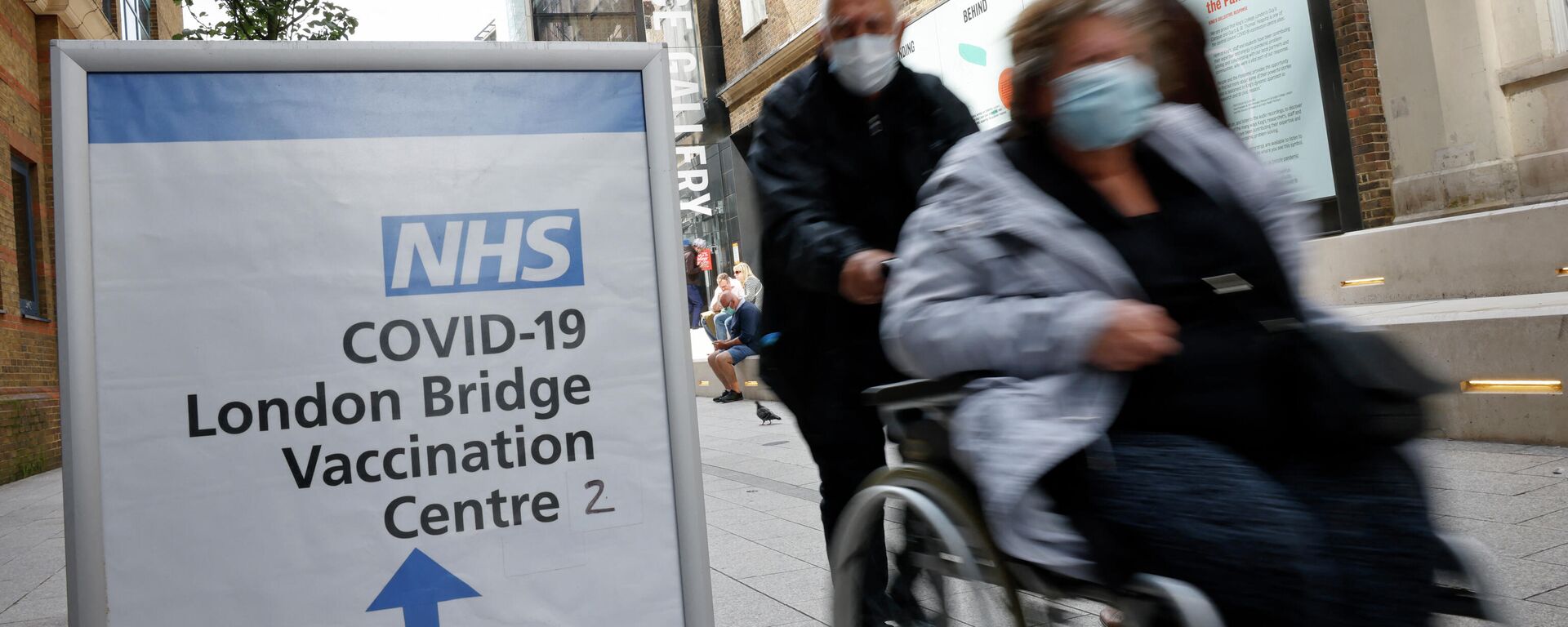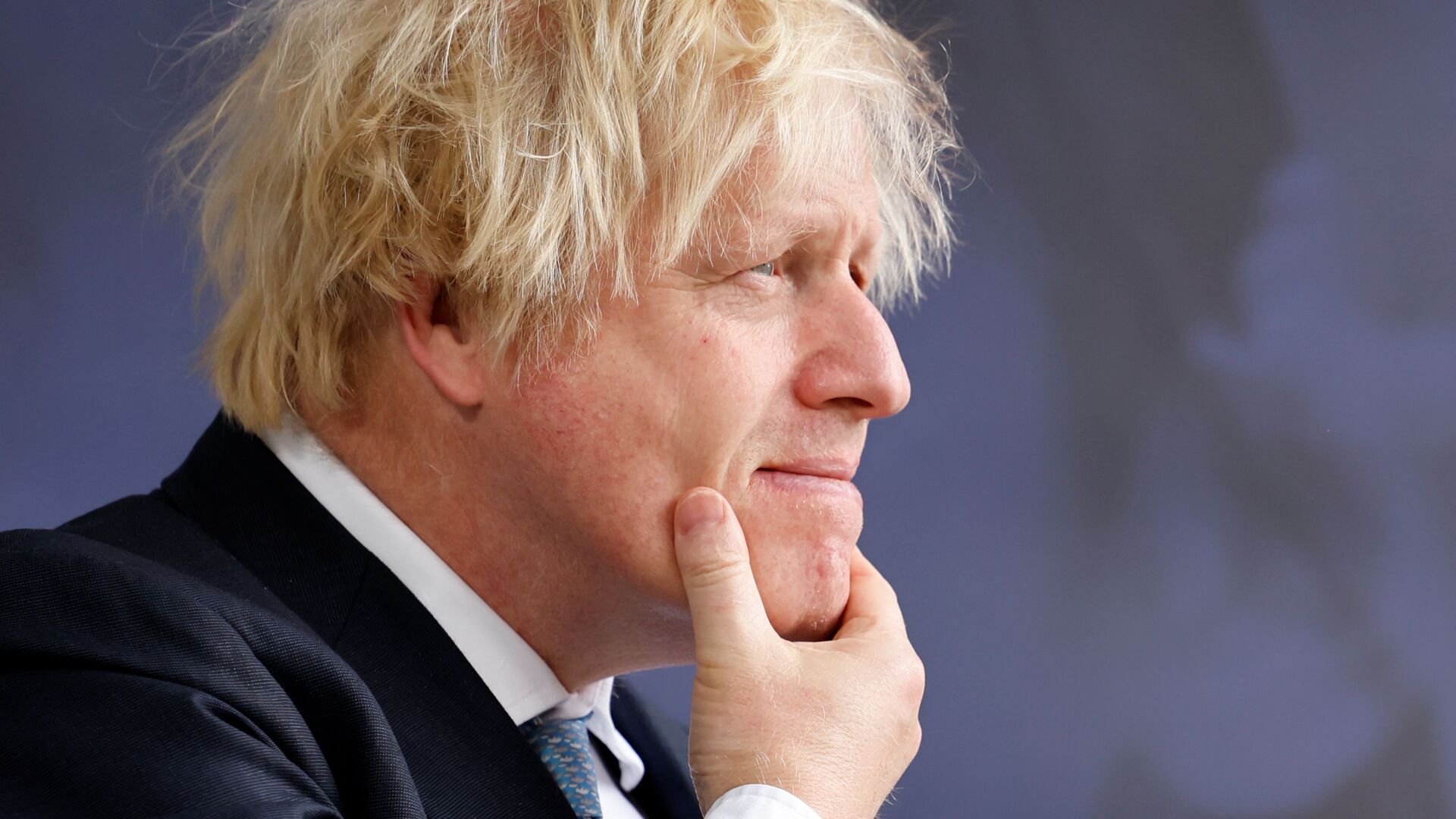https://sputnikglobe.com/20211013/nothing-to-be-proud-of-uks-handling-of-covid-failed-to-save-economy--peoples-lives-scholars-say-1089871988.html
Nothing to Be Proud of: UK's Handling of COVID Failed to Save Economy & People's Lives, Scholars Say
Nothing to Be Proud of: UK's Handling of COVID Failed to Save Economy & People's Lives, Scholars Say
Sputnik International
The UK has not lived up to its reputation as a leader in public health during the coronavirus pandemic, say British academics. Although later the government... 13.10.2021, Sputnik International
2021-10-13T05:05+0000
2021-10-13T05:05+0000
2023-05-28T15:16+0000
boris johnson
national health service (nhs)
pandemic
newsfeed
world
opinion
vaccination
uk parliament
uk economy
coronavirus
https://cdn1.img.sputnikglobe.com/img/07e5/08/1c/1083738189_0:0:3070:1728_1920x0_80_0_0_6ea81761ef47df955aa6e7b053668666.jpg
The UK government missed an opportunity to impose a lockdown in the early days of the coronavirus pandemic and sought to "only moderate the speed of infection" through the population – rather than trying to stop the spread of the disease, according to the newly-released British parliamentary report.While praising the Johnson government's attitude towards vaccination, MPs lashed out at the "slow, uncertain, and often chaotic performance of the test, trace, and isolate system", saying it "severely hampered the UK's response to the pandemic". All in all, errors made by BoJo's cabinet "cost thousands of lives", the report claims.Overcentralisation of Public Health & Misleading Medical AdviceThe report finds that there were really bad failings in most aspects of the handling of the pandemic, from the preparedness in the first place for a pandemic and then later on the impact on social care and the impact of the COVID outbreak on specific communities, says Professor John Ashton, former regional director of public health for the North West of England and president of the UK Faculty of Public Health.The professor agrees with the authors of the report that there were real opportunities missed to intervene early on. In particular, the British government failed to prevent the influx of people from infected areas, according to the academic. He refers to a large number of families who had been skiing in Italy and Austria in February in 2020 who came back unmonitored and spread the virus around the country. Similarly, the big horse racing festival in Cheltenham and the big football match in Liverpool between Atlético Madrid and Liverpool FC contributed to the spread of COVID.The government's scientific team is also responsible for giving very misleading advice to No 10, Ashton remarks, referring to one medical adviser saying that wearing masks would make things worse as well as the team's failure to recommend social distancing in time. "There was a failure to learn the lessons from China and other countries in the Far East that were very quick to get on top of the virus in those early weeks," he believes.In addition to this, the professor criticises the "overcentralisation of public health into London," and cites "the failure to really use the local city and town public health directors' teams that have long experience of dealing with these kinds of matters".According to Pankhania, instead of using all those local resources, which Brits already have in place, the government created a new test and trace service and a new laboratory service for testing."Both of these were great expenses, new and they didn't talk to each other and therefore they were inefficient in the middle of a crisis," the infectious disease specialist underscores.'If You Fail to Sort Out Health, the Economy Also Suffers'The coronavirus pandemic has cost quite a bit for the UK economy. The BoJo government has had to borrow £299 billion ($406 billion) from April 2020 to March 2021 and is expected to borrow over £200 billion ($271 billion) from April 2021 to March 2022, according to the BBC. About £100 billion were spent on support for jobs; the NHS and other public services were given considerable sums of money to fight the pandemic; and on top of this the pandemic-related lockdowns slashed the amount the government raises in taxes.The country's gross domestic product (GDP) fell by 9.69% in 2020, the biggest decline since 1921, according to the Office for National Statistics.Although the UK's GDP increased by 5.5% in the April-June 2021 period – more than the initially estimated 4.8% - the country could have avoided the sharp economic slump if the government acted more swiftly to stop the coronavirus spread, according to Pankhania.The countries that acted decisively at the beginning of the pandemic demonstrated that in dealing with the pandemic, the economy is best protected, echoes Professor John Ashton.The pandemic provided some key lessons to the UK academia and the government, according to the British observers. One of them is that the country has to lend its sympathetic ear to domestic and international specialists who have genuine expertise and at the same time use its own tried and trusted plans, Pankhania believes."The government’s advisers need to be drawn from a much wider circle rather than very narrow academic people," suggests Ashton. "They need to be different disciplines. We need history in there. And there were historical lessons to be learnt from the pandemic of 1918-19. We need anthropology and social science."What's more, the British government should be open and transparent with the public when the country is dealing with a challenge such as the global coronavirus pandemic, the professor concludes.
https://sputnikglobe.com/20211012/uk-mps-inquiry-thousands-of-deaths-could-have-been-avoided-during-covid-pandemic-1089852102.html
https://sputnikglobe.com/20211009/new-study-claims-covid-19-did-not-originate-in-a-chinese-cave--1089790809.html
https://sputnikglobe.com/20211012/uk-chancellor-rishi-sunak-plans-budget-cuts-worth-2bln-amid-highest-tax-rate-in-peacetime-1089855455.html
united kingdom (uk)
Sputnik International
feedback@sputniknews.com
+74956456601
MIA „Rosiya Segodnya“
2021
News
en_EN
Sputnik International
feedback@sputniknews.com
+74956456601
MIA „Rosiya Segodnya“
Sputnik International
feedback@sputniknews.com
+74956456601
MIA „Rosiya Segodnya“
boris johnson, national health service (nhs), pandemic, newsfeed, opinion, vaccination, uk parliament, uk economy, coronavirus, covid-19, delta variant of covid-19, united kingdom (uk)
boris johnson, national health service (nhs), pandemic, newsfeed, opinion, vaccination, uk parliament, uk economy, coronavirus, covid-19, delta variant of covid-19, united kingdom (uk)
Nothing to Be Proud of: UK's Handling of COVID Failed to Save Economy & People's Lives, Scholars Say
05:05 GMT 13.10.2021 (Updated: 15:16 GMT 28.05.2023) The UK has not lived up to its reputation as a leader in public health during the coronavirus pandemic, say British academics. Although later the government managed to carry out large-scale inoculation, this cannot compensate for the damage inflicted on the UK economy by the government's mishandling of COVID, they say.
The UK government missed an opportunity to impose a lockdown in the early days of the coronavirus pandemic and sought to "only moderate the speed of infection" through the population –
rather than trying to stop the spread of the disease, according to the newly-released British parliamentary report.
While praising the Johnson government's attitude towards vaccination, MPs lashed out at the "slow, uncertain, and often chaotic performance of the test, trace, and isolate system", saying it "severely hampered the UK's response to the pandemic". All in all, errors made by BoJo's cabinet "cost thousands of lives", the report claims.

12 October 2021, 06:12 GMT
Overcentralisation of Public Health & Misleading Medical Advice
The report finds that there were
really bad failings in most aspects of the handling of the pandemic, from the preparedness in the first place for a pandemic and then later on the impact on social care and the impact of the COVID outbreak on specific communities, says Professor John Ashton, former regional director of public health for the North West of England and president of the UK Faculty of Public Health.
"The only thing that seems to have gone well has been the procurement and use of the vaccines," says Ashton. "And it really is a poor show on the country that's actually always been at the forefront of public health. I think there are other countries that haven't done very well, but the UK is really not living up to its reputation as a leader in public health in this outbreak."
The professor agrees with the authors of the report that there were real opportunities missed to intervene early on. In particular, the British government failed to prevent the influx of people from infected areas, according to the academic. He refers to a large number of families who had been skiing in Italy and Austria in February in 2020 who came back unmonitored and spread the virus around the country. Similarly, the big horse racing festival in Cheltenham and the big football match in Liverpool between Atlético Madrid and Liverpool FC contributed to the spread of COVID.
The government's scientific team is also responsible for giving very misleading advice to No 10, Ashton remarks, referring to one medical adviser saying that wearing masks would make things worse as well as the team's failure to recommend social distancing in time. "There was a failure to learn the lessons from China and other countries in the Far East that were very quick to get on top of the virus in those early weeks," he believes.

9 October 2021, 13:11 GMT
In addition to this, the professor criticises the "overcentralisation of public health into London," and cites "the failure to really use the local city and town public health directors' teams that have long experience of dealing with these kinds of matters".
"With respect to containment, we set about not using the existing expertise, the existing structures, the existing infrastructure of local authorities, Public Health England and the local National Health Service," notes Dr. Bharat Pankhania, infectious disease specialist and senior clinical lecturer at the University of Exeter Medical School.
According to Pankhania, instead of using all those local resources, which Brits already have in place, the government created a new test and trace service and a new laboratory service for testing.
"Both of these were great expenses, new and they didn't talk to each other and therefore they were inefficient in the middle of a crisis," the infectious disease specialist underscores.
'If You Fail to Sort Out Health, the Economy Also Suffers'
The coronavirus pandemic has cost quite a bit for the UK economy. The BoJo government has had to borrow £299 billion ($406 billion) from April 2020 to March 2021 and is expected to borrow over £200 billion ($271 billion) from April 2021 to March 2022,
according to the BBC. About £100 billion
were spent on support for jobs; the NHS and other public services were given considerable sums of money to fight the pandemic; and on top of this the pandemic-related lockdowns slashed the amount the government raises in taxes.
The country's gross domestic product (GDP) fell by 9.69% in 2020, the biggest decline since 1921, according to the Office for National Statistics.
Although the UK's GDP increased by 5.5% in the April-June 2021 period – more than the initially estimated 4.8% - the country could have avoided the sharp economic slump if the government acted more swiftly to stop the coronavirus spread, according to Pankhania.
"If you sort out health, the economy is also sorted, if you fail to sort out health, the economy also suffers," the academic says. "What we should have done was early, prompt extensive actions, which would then have allowed the economy to restart a lot sooner, a lot better, a lot more extensively. What has instead happened is we've had a stop, a start, a stop and a start, and we've had extensive stops and because of those extensive stops, the economy has suffered. We could have done with fewer stops if we had acted earlier."

12 October 2021, 09:23 GMT
The countries that acted decisively at the beginning of the pandemic demonstrated that in dealing with the pandemic, the economy is best protected, echoes Professor John Ashton.
"What finished up in the UK situation is we had the worst of both worlds," the professor points out. "The economy has suffered very badly and we have the second-worst number of deaths after the United States in a developed country."
The pandemic provided some key lessons to the UK academia and the government, according to the British observers. One of them is that the country has to lend its sympathetic ear to domestic and international specialists who have genuine expertise and at the same time use its own tried and trusted plans, Pankhania believes.
"The government’s advisers need to be drawn from a much wider circle rather than very narrow academic people," suggests Ashton. "They need to be different disciplines. We need history in there. And there were historical lessons to be learnt from the pandemic of 1918-19. We need anthropology and social science."
What's more, the British government should be open and transparent with the public when the country is dealing with a challenge such as the global coronavirus pandemic, the professor concludes.







